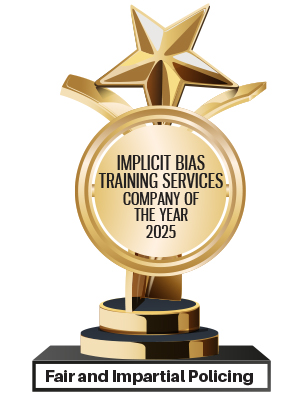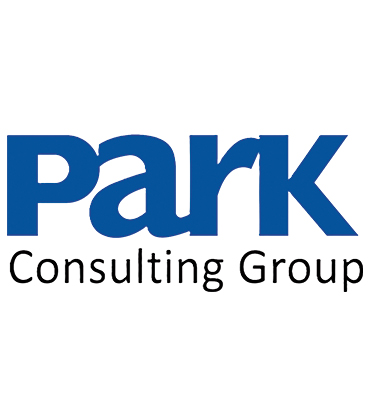Thank you for Subscribing to Gov Business Review Weekly Brief
Gov Business Review: Specials Magazine
Bias influences decisions in ways that often go unnoticed—in split-second judgments, hiring practices, customer service, or the policies that shape communities. Addressing this requires more than awareness; it demands strategies that transform insight into action. This is precisely what Fair and Impartial Policing (FIP) delivers. As indicated by the company name, FIP began as a law enforcement initiative but has evolved into the gold standard for implicit bias training for broader audiences, led by a diverse, women-owned team that exemplifies the equity they help organizations cultivate. Municipal and county bodies, correctional institutions, fire departments, and other government agencies now rely on FIP to help them incorporate fairness and impartiality into their daily work. Instead of treating bias training as just another compliance requirement, FIP makes it effective and usable. Its bias awareness curricula focus on real-world applications and provide practical tools for professionals to use when it matters most. FIP’s success is based in how it frames the issue. The goal is not to assign blame but to educate participants on how the brain processes information. While explicit bias has long been recognized, research into implicit bias has transformed the conversation. Even well-intentioned individuals are susceptible to unconscious mental shortcuts. Education and ongoing awareness are essential for preventing unintended harm and promoting impartial behavior. FIP builds its training around this idea, helping professionals see bias not as a personal flaw but as a human tendency rooted in cognitive science. Whether someone is a police officer responding to a call, a county worker serving a constituent, or a city council person shaping legislation, the pressures and responsibilities of the role can activate biases in different ways and different forms. FIP’s customized programs are designed to reflect those differences. Every training program is designed with industry-specific scenarios and actionable tools, equipping professionals to mitigate bias where it occurs and apply their learning in the critical moments that shape communities and institutions. Responsibilities—and how bias manifests—vary by role. FIP structures its programs into distinct training tiers, with curricula tailored to front-line service providers, first-line supervisors, and mid-level managers and leaders. An audience-specific approach ensures that every participant receives guidance that speaks directly to their day-to-day discretionary decisions.
Top Permitting System Software Consulting 2025
Every year, millions of homeowners and developers face a common challenge: navigating outdated, often frustrating permitting systems. For many, it’s their first—and sometimes only—interaction with local government, and it leaves a lasting impression. Whether it’s a homeowner seeking approval for a small renovation or a developer navigating a complex commercial project, permitting systems serves as a digital doorway to local government. This first touchpoint holds tremendous power in shaping public trust, satisfaction, and perception. Park Consulting Group, founded by Glenn Park, is a consulting firm that recognizes this high-stakes reality and has committed itself entirely to helping cities and counties transform these crucial systems into efficient, intuitive, and empowering tools for public service. From the outset, Park Consulting Group has stood apart by focusing on a singular mission: to elevate permitting system implementations in local government. Glenn Park’s journey began in the high-pressure world of Big 4 consulting, leading complex technology projects for Fortune 100 companies. When he pivoted into the world of local government technology, what he found was starkly different. City staff—often juggling multiple roles and dealing with limited resources—were expected to manage large-scale software transitions without the same level of support or expertise found in the private sector. The stakes were no lower—if anything, they were even higher, given the direct impact on public service—but the support systems were lacking. That gap between need and support became the driving force behind the creation of Park Consulting Group. As Park explains, “We’re not just advising from the sidelines. We step in, roll-up our sleeves, and work side-by-side with our clients to successfully deliver their projects.” His team immerses itself fully in each engagement, taking ownership of tasks like project management, workflow documentation, vendor coordination, data migration, configuration, report development, testing, training, and support. This hands-on approach allows city staff to continue focusing on their core responsibilities while trusting that their permitting system project is in expert hands. What makes Park Consulting Group uniquely effective is not only its hands-on involvement, but also its deep specialization. Unlike generalist consulting firms, Park Consulting is fully dedicated to permitting systems— bringing unmatched depth, focus, and experience to every project.
CXO INSIGHTS

Fleet Operations; The Key Ingredient
Charles Cramer, Director of Fleet Services, City of Lynchburg

Becoming Car Optional: Transforming Transportation Choices
Hanna Cockburn, AICP, Director of Transportation, City of Greensboro

Shaping the Future of Traffic and Transportation in the City of Rockville
Emad Elshafei, Chief of Traffic and Transportation, City of Rockville

Secrets Of Success In The Public Workspace
Wesley M. McBride, Public Works Inspector Manager, City of Denton

Driving Digital Transformation in Public Administration
Michael Rose, Administrative Manager, City of Chattanooga
IN FOCUS
Permitting System Software Consulting: Navigating Innovation and Efficiency in a Digital Era
Consulting services for permitting system software are essential in enhancing regulatory processes for businesses and government entities.
EDITORIAL
Advancing Government Services with Modern Tools and Training
Implicit bias training is becoming a steady part of how public agencies approach internal development. Short awareness talks are giving way to programs that unfold over time, offering staff the space to reconsider long held habits and build better ways of interacting with the communities they serve. When training is built around the actual challenges public employees face, it offers a better chance at shaping behavior in lasting and meaningful ways.
Equally important is the effort to modernize permitting systems, especially in departments still relying on legacy software that slows work and complicates collaboration. Many of these outdated platforms were developed under older technical constraints and no longer meet the pace and complexity of today’s agency needs. Consultants with expertise in permitting system software are helping agencies shift to more reliable, adaptable platforms that simplify coordination, improve tracking and reduce unnecessary steps in the process. A better system helps streamline approvals while making the process easier for staff and less frustrating for the people on the receiving end.
The direction public agencies are taking now signals a broader shift in how performance is understood. Results alone are no longer enough to define success. The clarity of communication, preparedness of teams and ease of navigating procedures all factor into how people judge a public service. Agencies investing in the right tools and training create an environment where steady delivery, practical access and respectful engagement come together more naturally.
In this edition of Government Business Review, we explore the recent developments in implicit bias training services and permitting system software consulting and how government agencies are turning to expert partners to support responsive, efficient and equitable operations.
We hope this edition of the Government Business Review helps you find the right partner for your business requirements.









